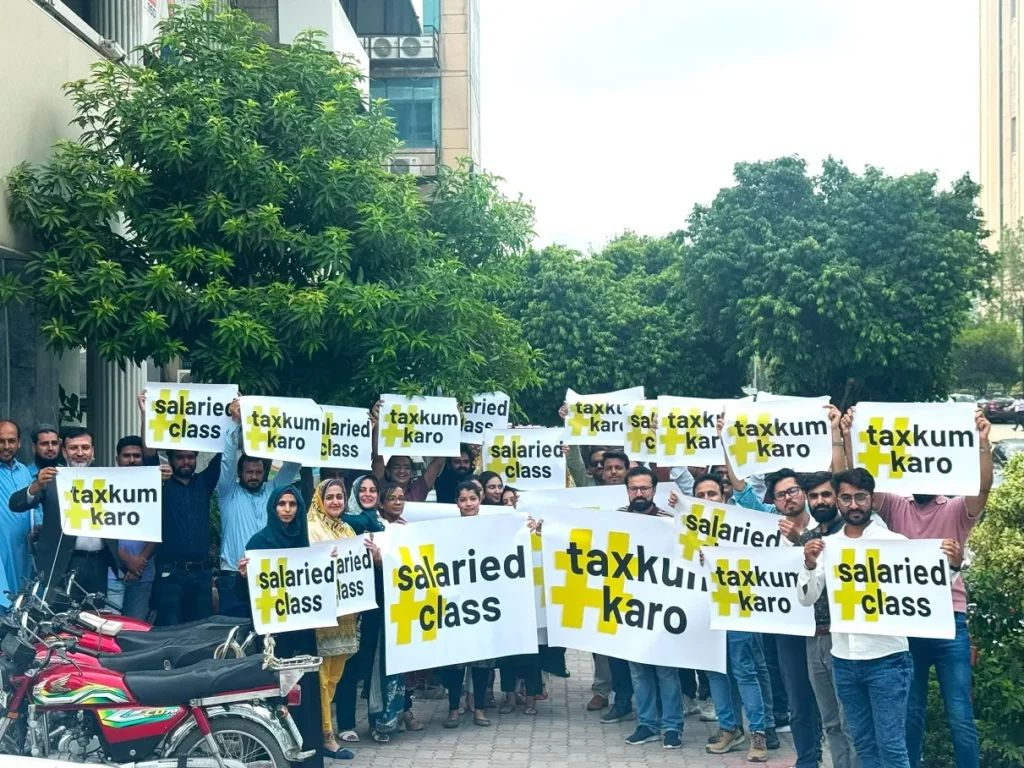Islamabad: Despite being one of the most tax-compliant segments of the population, the salaried class in Pakistan continues to bear a disproportionate tax burden. It seems they are facing the noose of an unjust, unfair, and inequitable tax system.
This group, which diligently files returns and has taxes withheld at source by employers, faces high tax rates, the erosion of tax benefits, and a general sense of unfair treatment.
This issue highlights a broader problem in Pakistan’s taxation system: while those who comply with tax regulations are overburdened, those who avoid the tax net, often through informal transactions outside the banking system, face little to no repercussions.
The salaried class is a clear example of this systemic imbalance.
Even though this group consistently meets its tax obligations, the government increasingly targets them for higher taxes, under the justification that other sectors of the economy are difficult to tax due to weak enforcement mechanisms or political constraints.
This focus on the salaried class may provide short-term relief to the tax system, but it risks undermining long-term goals by fostering a culture of tax avoidance.
As the federal budget approaches, it presents an opportune moment to call for reforms that will benefit the salaried class and make the tax system more equitable.
The government has already projected a 55% increase in tax collection from the salaried class for the current fiscal year, compared to the previous year’s collection of Rs368 billion.
This growing reliance on the salaried segment makes it even more difficult to introduce supportive tax measures. However, with political will, effective policy design, and robust enforcement, these challenges can be overcome.
One of the first steps toward reform is revisiting the tax rates for salaried individuals. The current tax-free threshold of Rs0.6 million per annum should be increased to Rs1.2 million.
This adjustment would help alleviate the pressure on middle-income earners who are burdened by rising tax rates, despite modest salary increases.
Read More: Salaried Class Bears Rs. 120B Extra Tax Burden
Additionally, Pakistan’s tax brackets are not indexed to inflation, a globally accepted practice that prevents fiscal drag or bracket creep—where rising nominal incomes due to inflation result in higher effective tax burdens, particularly for low- and middle-income earners.
Indexing tax brackets to inflation would ensure that salary increases, which are often just enough to keep up with inflation, do not lead to disproportionate increases in tax liabilities.
There is also a need to address the sharp tax cliffs that occur when salary increases push individuals into higher tax brackets.
For instance, when an individual’s annual salary exceeds Rs4.1 million, a flat 35% tax rate applies, down from a previous threshold of Rs6 million.
Also Read: Increased Taxes On Salaried Class Will Force More Skilled Pakistanis to Leave Country
This creates a steep cliff effect that disproportionately affects middle-income earners. Introducing additional tax slabs would smooth out these
